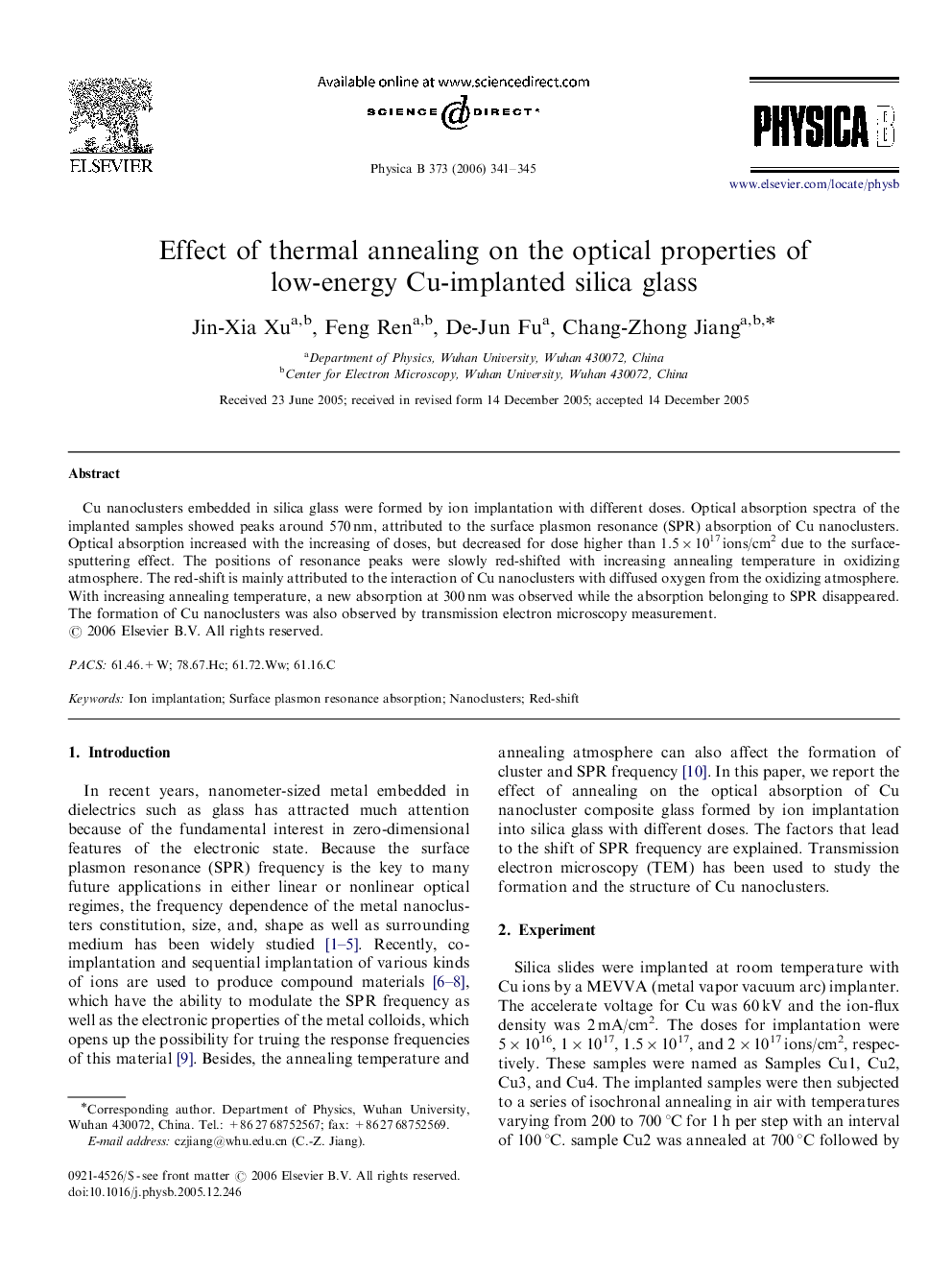| Article ID | Journal | Published Year | Pages | File Type |
|---|---|---|---|---|
| 1816924 | Physica B: Condensed Matter | 2006 | 5 Pages |
Abstract
Cu nanoclusters embedded in silica glass were formed by ion implantation with different doses. Optical absorption spectra of the implanted samples showed peaks around 570Â nm, attributed to the surface plasmon resonance (SPR) absorption of Cu nanoclusters. Optical absorption increased with the increasing of doses, but decreased for dose higher than 1.5Ã1017Â ions/cm2 due to the surface-sputtering effect. The positions of resonance peaks were slowly red-shifted with increasing annealing temperature in oxidizing atmosphere. The red-shift is mainly attributed to the interaction of Cu nanoclusters with diffused oxygen from the oxidizing atmosphere. With increasing annealing temperature, a new absorption at 300Â nm was observed while the absorption belonging to SPR disappeared. The formation of Cu nanoclusters was also observed by transmission electron microscopy measurement.
Related Topics
Physical Sciences and Engineering
Physics and Astronomy
Condensed Matter Physics
Authors
Jin-Xia Xu, Feng Ren, De-Jun Fu, Chang-Zhong Jiang,
